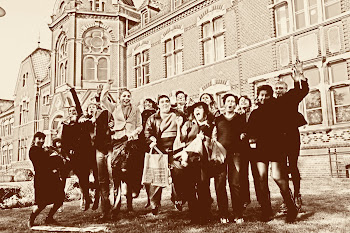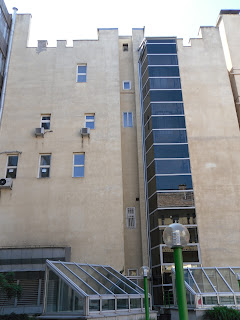IV
Se il copyright è nato come un arcano legato all’autenticità, il ruolo
gioca è tutt’altro che anacronistico: indica infatti la rinomanza, com’anche il
successo. Etimologicamente: cosa ‘viene/passa dopo’…
Il copyright, come diritto di copia, sarebbe del tutto superfetativo in un
contesto ove l’autenticità dell’originale non fosse posta in dubbio.
Infatti, ben prima di salvaguardare i diritti di copia in un contesto in
cui la possibilità di riproduzione aumenta esponenzialmente, il copyright
sposta il carattere ontologico ed economico dell’‘oggetto riprodotto’ in
carattere prettamente mediatico.
Stabilire il diritto di copia non si caratterizza come un procedimento
additivo all’oggetto in sé, piuttosto significa stabilire il diritto di
ri/produrlo. Come la rinomanza, anche la riproduzione è caratterizzata da due
momenti (il momento produttivo ed il momento riproduttivo) che non possono
essere scinti.
Nella valenza mediatica della ri/produzione confluiscono sia ontologia che
economia. Sarebbe erroneo pensare che la realtà mediatica divenga ontologica ed
economica (in qualsivoglia visione utopica o apodittica) o che possa sostituire
tali realtà. La realtà mediatica (o virtuale) solo apparentemente ambisce a
sostituire la realtà ontologica. In realtà le si pone accanto alterandone la valenza,
come la riproduzione si accosta alla produzione: la realtà ontologica diventa
allora mediatica “in se stessa.” In altri termini: l’essere non smette
d’essere, ma esiste soltanto mediaticamente. Non comprenderne a fondo la
valenza, può risultare fatale.
Ogni teoria che insista sulla fase di pericolo in cui l’ontologia sembri
entrata (teoria di cui forse il primo grande esponente fu Heidegger) non solo
manca il vero aspetto problematico ma alimenta il pericolo contro di cui si
fece portavoce. Infatti la medialità ontologica (“il destino dell’essere”),
lungi dall’offuscare o sostituirsi per l’essere determina quest’ultimo come
mediatico. Il fenomeno, di cui Heidegger seppe trovare le radici in Nietzsche
mentre Derrida ne dipanò di poi i rami, si caratterizza non come un fenomeno
sbobinatosi a partire da Parmenide bensì è attuale e multimoderno.
Il disvelamento dell’essere, il suo destino, è il successo della
rinomanza: un fenomeno mediatico.
Ontologia ed economia continuano a sussistere soltanto mediaticamente nel
copyright.
L’altro polo del diritto di ri/produzione è l’invenzione.
Se il bottino di guerra nel processo culturale poteva esser considerato un
accumulamento di oggetti autentici che fossero contemporaneamente preservati ed
abusati, il bottino di guerra mediatico è l’informazione: sempre e soltanto una
questione di copyright. Significa il diritto di riproduzione ed accesso alla
rinomanza. Significa anche sigillare la rinomanza: il nome nella parola.
La costituzione del nome nella parola: la sua rinomanza, è il dominio
mediatico del copyright.
Le implicazioni della componente mediatica in qualsiasi ontologia emerge
considerando l’aspetto del brevetto nel copyright. Quest’ultimo non potrebbe
essere imposto su alcun ritrovamento ontologico. Eppure la ‘natura’ mediatica
della scoperta è l’in/venzione. Il sigillo mediatico è appunto il brevetto che
viene posto sull’invenzione [inventare/trovare].
In questa prospettiva non vi è niente che non possa essere brevettato
perché non vi è essere che non sia mediatico. Si è mediaticamente.
Il nome è un arcaico strumento per il copyright. La carta d’identità
sancisce il diritto di copia sulla persona o la ‘natura’ mediatica
dell’individuo. Se inizialmente aveva potuto sembrare uno strumento biopolitico
di determinazione ed identificazione, infatti sancisce la veste mediatica della
persona. Di qui l’inquietudine che si ha guardando vecchie carte d’identità che
si appellano ad una sistematizzazione tanto anacronistica come le misure del
corpo, i colori e l’immagine del volto della persona.
Tutto ciò che porti seco un senso storico o temporale, ogni residuo
mnemonico, deve venire abolito nel copyright che mantiene inalterato soltanto
se stesso e nessun dato contingente che minacci la mediaticità.
In tal senso il nome sulla carta d’identità, l’arcano della rinomanza
rivela nel suo ‘corpo’, nella sua ‘nudità’, un anacronismo. La rinomanza
privilegia infiniti pseudonimi o microchips.
L’immagine digitale è un ottimo esempio d’in/venzione. Indica, oltre la
riproducibilità, immediatamente la medialità. In tal senso, dove il copyright
aderisce alla riproducibilità, il brevetto esprime direttamente la medialità
del digitale.
V
Il disvelamento dell’essere non è l’evento, bensì il successo. In altri
termini: non ‘cosa’ accade bensì il succedere nel suo sempre nuovo proclama di
successo.
Successo etimologicamente significa ‘sub-cedere’: ‘venire/passare dopo”.
Dopotutto sia ‘evento’ che ‘successo’ pongono sulla propria interfaccia due
diverse temporalità: il futuro/presente ed il passato/presente. Tale
articolazione è loro necessaria come realtà mediatica di ri/nomanza.
Definire il successo, la rinomanza, come una articolazione del ‘destino
dell’essere’ significa sottolineare la natura mediatica del destino.
La morale degli schiavi è la socializzazione e contestualizzazione della
morale dei signori: il suo successo.
La ‘follia’ di Nietzsche non differisce dalla follia di Hölderlin (secondo
Heidegger) nel tentativo di scindere il nome dalla rinomanza dopo averne
diagnosticata l’im/possibilità. Derrida ne trae l’insegnamento e lo pone a buon
frutto. Sarebbe assai stolto non voler riconoscere le implicazioni del successo
europeo di Derrida che è passato oltre oceano.
Si può parlare a buon diritto del successo e rinomanza di Derrida.
Il destino dell’essere è il suo successo.
Uno psicologismo spiccio potrebbe indicare che dato l’insuccesso come
esito, sia ragionevole voler spezzare il legame con il ri/conoscimento per
tornare alla parola nominante (e non ancora rinomata).
Il nazismo è stato una splendida forma d’in/successo. Fascismi e
totalitarismi sembran aver voluto sottolineare il nome della rinomanza.
Questi tempi mediatici possibilmente spostano l’accento sulla rinomanza
del nome ed il termine ‘globalizzazione’ ha sostituito ‘fascismo’.
Destino è allora il nome della rinomanza: il suo mito come successo.
















































